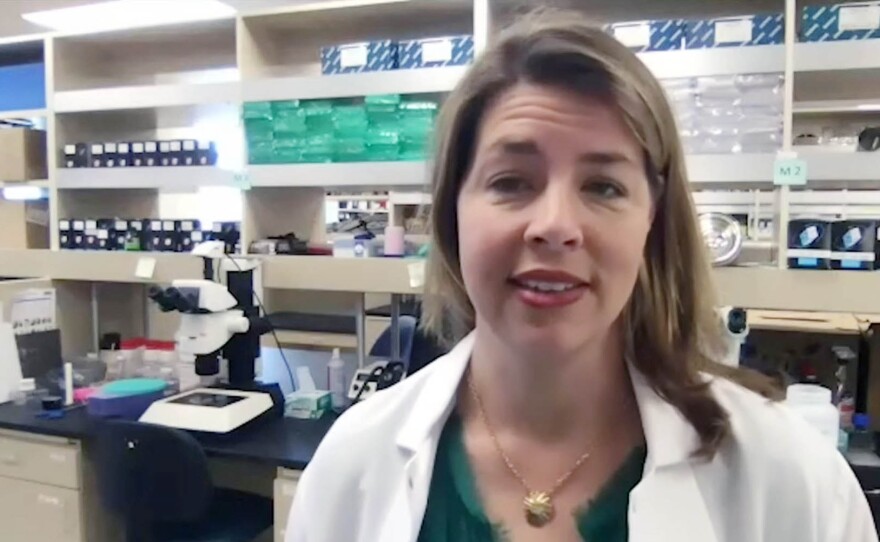Local researchers are collecting antibodies from people around the world who have survived coronavirus to develop a treatment. The international effort led by the La Jolla Institute for Immunology aims to connect dozens of labs across continents to find the best option.
The coronavirus pandemic that has killed more than 100,000 and infected more than 1.6 million has spurred countless companies to develop a cure, but collaboration across laboratories can speed up the process and improve outcomes.
Erica Ollmann Saphire, a professor and researcher at the La Jolla Institute, is leading the newly launched Coronavirus Immunotherapy Consortium or CoVIC. She said the initiative is actually two-pronged because identifying effective antibodies for a treatment can also inform researchers what kind of response a successful vaccine would have to generate.
"The information will be useful to evaluate the vaccines, and the actual drugs themselves will provide some immediate benefit in the meantime while we wait for those vaccines to be made," Saphire said.
The goal of the collaboration, which is backed by the Bill and Melinda Gates Foundation, is to sift through antibodies created in labs but mostly those produced by humans who have survived the virus and identify ones that attack the virus best. The La Jolla Institute will receive the proteins from various sources, number them to conceal their origin then distribute them back to partners to study simultaneously.
"Our job is to serve as the unbiased clearing house to make recommendations to the Gates Foundation about which antibodies function best and why, and more importantly, which ones should be combined together to make an ideal complementary therapy called a treatment cocktail," Saphire said.
The institute will assess results from the consortium's partners — they're planning for dozens but have only announced Duke University, Carterra, a biotech firm with a site in the Bay Area and Canadian company Nexelis — and recommend the best treatment to funders like the World Health Organization or the Gates Foundation.
It sounds simple, but the La Jolla Institute's Shane Crotty said it can take time to find antibodies that are most effective.
"A really good antibody is a thousand times better than an OK antibody — there’s enormous range of functionalities," he said.
Even when they do find the right molecules and create a therapy, that treatment doesn’t last forever.
"Antibodies are great drugs because they’ll last for three weeks or more. It’s not like taking a Tylenol that works for four hours," Crotty said, "but it’s still a short term solution."
While Saphire is working on injectable antibodies as a treatment, Crotty is tapping into that research to develop a vaccine, which teaches human cells how to make their own antibodies.
"They'll keep doing it week over week, month over month, year over year," Crotty said.
But the benefit of antibody therapy, Saphire said, is instant protection while vaccines take one to two months.
"That's great for a virus that you expect to encounter four to eight weeks from now, but if you need immunity now, delivering it in this way can do that for you today," she said.
Still, that “today” is months away at least. Saphire said the earliest an entity participating in the consortium will begin testing antibody therapies on humans is June. The institute plans to review results from all participating labs to find the best antibodies to use for a treatment.
COVID-19 survivors can contact covic@lji.org for more information or to contribute to a study.








